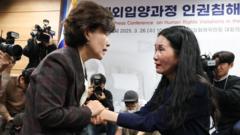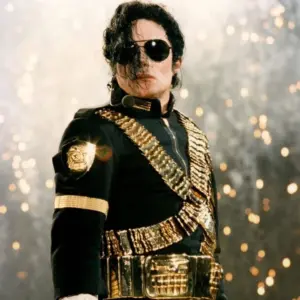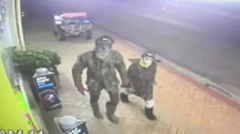An inquiry uncovers systemic failures and exploitation in the adoption processes, affecting thousands of children sent abroad.
**South Korea Confronts Dark Adoption History Amid Landmark Inquiry**

**South Korea Confronts Dark Adoption History Amid Landmark Inquiry**
South Korea's controversial adoption program has come under scrutiny as a commission reveals decades of human rights violations.
In a striking revelation, South Korea's government has admitted to extensive human rights violations linked to the nation's mass adoption program that has impacted over 170,000 children since the 1950s. The findings emerged from a landmark report by the Truth and Reconciliation Commission, highlighting the lack of oversight in private adoption agencies and exposing allegations of fraud, coercion, and falsification of records.
The commission revealed that South Korea has historically sent more children abroad for adoption than any other nation, primarily to Western countries. Despite recent reforms to tighten adoption practices, many adoptees and their biological families continue to grapple with the consequences of these flawed systems. Park Sun-young, chair of the commission, expressed deep remorse, acknowledging the traumatic experiences faced by many adoptees, stating, "This is a shameful part of our history."
The inquiry, which began last year, has prompted 367 adoptees to file petitions alleging irregularities in their adoptions. So far, 56 of these cases have been recognized as human rights violations. The commission is expected to complete its investigation by May, shedding light on the legacy of a program designed to alleviate poverty post-Korean War.
Private agencies were largely unchecked, with the government failing to implement adequate oversight, allowing the rapid facilitation of adoptions. The report notes that foreign organizations often demanded a monthly quota of children for adoption, which resulted in Korean agencies complying with little regard for due process. Adoptions were often clouded in secrecy, lacking proper consent from biological parents and frequently involving fabricated narratives about the children’s backgrounds. This has left many adoptees with false identities and limited access to information regarding their origins.
Amidst these revelations, the South Korean government passed legislation in 2023 mandating that all overseas adoptions be managed by a government ministry rather than private entities, set to take effect by July. However, the government has yet to formally respond to the report's findings.
The plight of many adoptees is highlighted by individuals like Inger-Tone Ueland Shin, who faced extreme hardships following her adoption by a Norwegian couple at the age of 13. After discovering her adoption was illegal, she endured significant challenges, including an abusive household. Despite recent legal victories in Norway, she voiced a deep sense of loss, stating, "I have been living in the wrong country, and I have had a painful and miserable life."
The commission's findings are a crucial step toward acknowledgment and accountability for a past marred by exploitation and abuse, as South Korea grapples with reconciling its adoption history with future practices.



















